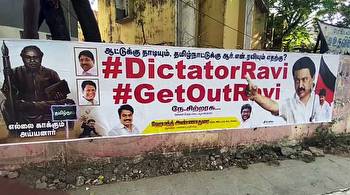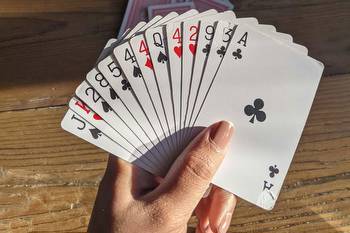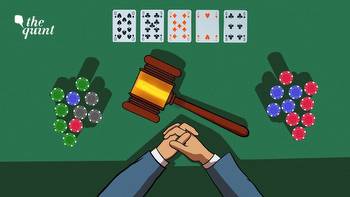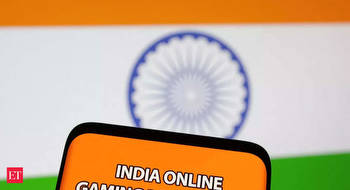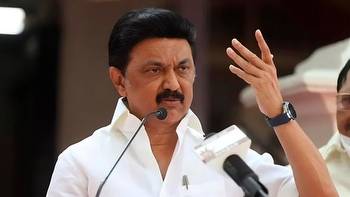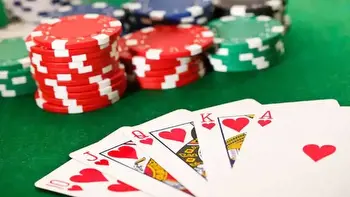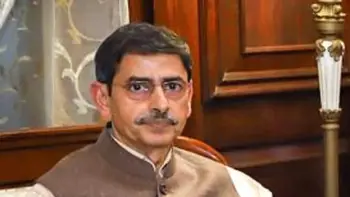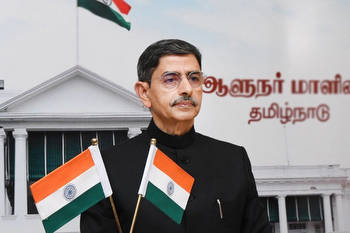Explained: Tamil Nadu's New Law On Ban Of 'Games Of Chance' And Gambling

The Tamil Nadu government has stated that although only internet gambling has been outlawed in the state, no comprehensive ban on online games has been proposed. They are now asking Governor R. N. Ravi to sign a bill that will outlaw online gambling and govern online games with in state.
S. Raghupathy, the state's law minister, noted that no comprehensive ban has been suggested in accordance with the doctrine of proportionality. "Games are not entirely forbidden. They can be classified as games of skill or games of chance, and only online gambling is prohibited. It is therefore a proportional restriction, the minister said.
So, what is the recent Tamil Nadu online gaming ordinance?
Ban Of 'Games Of Chance' And Gambling | Unsplash
Earlier this year, the state of Tamil Nadu enacted a law outlawing online gambling, including rummy and poker. An ordinance replacement measure was approved by the state legislature three weeks later.
The bill needs the state governor's approval before it can become law as of the time of this publication. Additionally, the ordinance has not yet gone into effect.
The All India Gaming Federation (AIGF) filed a constitutional challenge against the legislation soon after it was announced.
The Quint reports that the AIGF's biggest issue with the legislation put up by the Tamil Nadu government is that it forbids games of skill as well, such as rummy and poker. Now that the state administration has clarified that the ordinance simply aims to forbid gambling and regulate internet gambling, let's find out how the two differ.
Luck vs Skill: The debate
A game of luck, in its most basic definition, is any game where winning requires no special skill on the side of the player. A game's outcomes are entirely dependent on luck or chance. The majority of the game's components are so random that it is nearly impossible for anyone but an extremely skilled player to spot a pattern.
Ban Of 'Games Of Chance' And Gambling | Unsplash
In contrast, a game of skill is one that calls for the player to use some form of skill, such as mental acuity, intellect, a particular skill, or even raw strength. A player's talent, the techniques they employ, and the amount of experience they have with the game all affect their chances of winning.
The problem is that, despite claiming to be a game of skill, the majority of online games actually heavily rely on chance or luck. However, it is also true that players of all skill levels must apply some skill and technique when playing games like poker, rummy, and blackjack.
The bill was approved at a Cabinet meeting on September 26 that was presided over by Chief Minister M.K. Stalin. It was created in response to a committee's suggestion that was chaired by retired Madras High Court judge K. Chandru.
This development came about as a result of the Madras High Court's ruling in August 2021 to invalidate the AIADMK-enacted Tamil Nadu Gaming and Police Laws (Amendment) Act.
The court had ruled that a blanket prohibition on skill games violated Article 19 (1)(g) of the Constitution, which grants people the right to practise any profession and to engage in any occupation, trade, or business. The former regulation had also prohibited stakes-based online games like rummy and poker.
The ordinance suggests establishing the Online Gaming Authority in order to regulate online games.
The Online Gaming Authority
A retired officer with the rank of Chief Secretary will be in charge of the online gambling authority. Four people will make up the body: an acclaimed psychologist, a retired police officer with at least Inspector-General status, and information technology and online gaming specialists.
Ban Of 'Games Of Chance' And Gambling | Unsplash
The Online Gaming Authority will grant registration certificates to regional online game developers, identify online games of chance for submission to the government for ban recommendation, and monitor the operation of the online game developers. The ordinance also includes provisions for an appeals authority. It will be composed of three people, one of them will be a former High Court judge.
According to the Hindu, the official claimed that there wasn't any estimation of the number of internet game providers in the State.
What does the law say?
Gambling in all of its forms is governed by a single central law in India. The Public Gambling Act of 1867 is the name of the law, which is an outdated statute unprepared to address the issues posed by digital casinos, internet gambling, and gaming.
In fact, this was the main justification cited by an inter-ministerial task force for calling for the creation of new national regulations for gambling and online gaming in India.
The Public Gambling Act now only permits exceptions if the wager is being placed on a "game of skill" rather than a game that is solely dependent on chance. Because of this, some states and not others have laws specifically governing internet gambling.
Online gaming, online gambling, and online games of chance are all defined by law. The penalty for engaging in internet gambling or games of chance is up to three months in jail, a fine of 5,000 yen, or both. Any person who makes or causes to make advertisements for the prohibited games in any media faces a year in prison, a fine of 5 lakh, or both. According to the ordinance, the supplier might face up to three years in prison, a fine of 10 lakh, or both penalties.
Additionally, the code imposes limitations on online game publishers based outside the area. Regarding those who disobey the restrictions, the Authority may, after due process, recommend to the State government that the Central government exercise its authority under the Information Technology Act of 2000 to prevent residents of the State from using the services offered by foreign providers.
The official responded that either a regular court or a designated court, the specifics of which will be announced later, will decide which court of law will impose the punishment. Regarding the proposed Authority's schedule for issuing certificates of registration, the official stated that information would be included in the rules that would be drafted.
What are the states having online gaming law?
Pexels
The Public Gambling Act has been adopted by states like Delhi, Madhya Pradesh, and Uttar Pradesh with various modifications.
To control public gambling, several areas, including Goa, Sikkim, Daman, Meghalaya, and Nagaland, have drafted specific regulations. However, not all of these states have rules governing online gambling because it is still a relatively new and developing industry.












